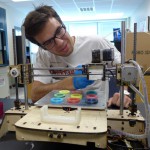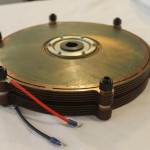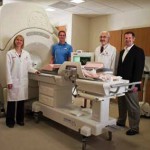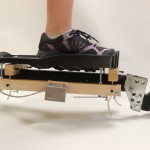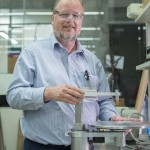Tag Spinoffs
Faster, smaller, cheaper: Technique could speed biologic drugs
Antibodies are specific molecules that can lock onto a particular cellular structure to start, stop or otherwise temper a biological process. Because they are so specific, antibodies are at the forefront of drug discovery. So drug companies want a faster route to step one: identifying which of the millions of possible antibodies will work against molecules that cause disease.
Simple sample: Federal grant advances pain-free blood tests from UW startup
A company with deep roots at UW–Madison wants to make blood sampling less painful and more convenient. Tasso Inc. is perfecting a device the size of a pingpong ball that extracts a small sample while held against the skin for two minutes.
High-power laser spinoff proves versatility is strength
Since lasers were invented in 1960, they have penetrated countless scientific, industrial and recreational fields: from eye surgery to DVD players, from cutting steel to triggering ignition in missile stages.
First woman director of the U.S. Patent and Trademark Office visits for a discussion about innovation and opportunity
UW-Madison, a world leader in producing patents, will welcome Michelle K. Lee, director of the U.S. Patent and Trademark Office, on April 15 for a tour of the Wisconsin Institutes for Discovery and a discussion about the future of intellectual property and innovation.
Student inventors get boost to commercialize color 3-D printing, iPhone app
Applying a similar approach to the 3-D printer, a group of University of Wisconsin–Madison students are commercializing a device that adds color to a printer that now dominates the market. Their business idea was one of two student projects to receive an Igniter grant from the university’s Discovery to Product (D2P) office.
Grants fund UW technology projects on the road to commercialization
An exercise machine that helps stroke victims walk. An advanced technology for assessing the progress of prostate cancer. A faster process for making neural stem cells to investigate new treatments for injury and disease. A cheaper, more beautiful LED light bulb. A game to teach meditation. These projects, and a dozen more, are beneficiaries of the first round of awards by the University of Wisconsin–Madison’s Discovery to Product, or D2P, program, which began operating in March.











